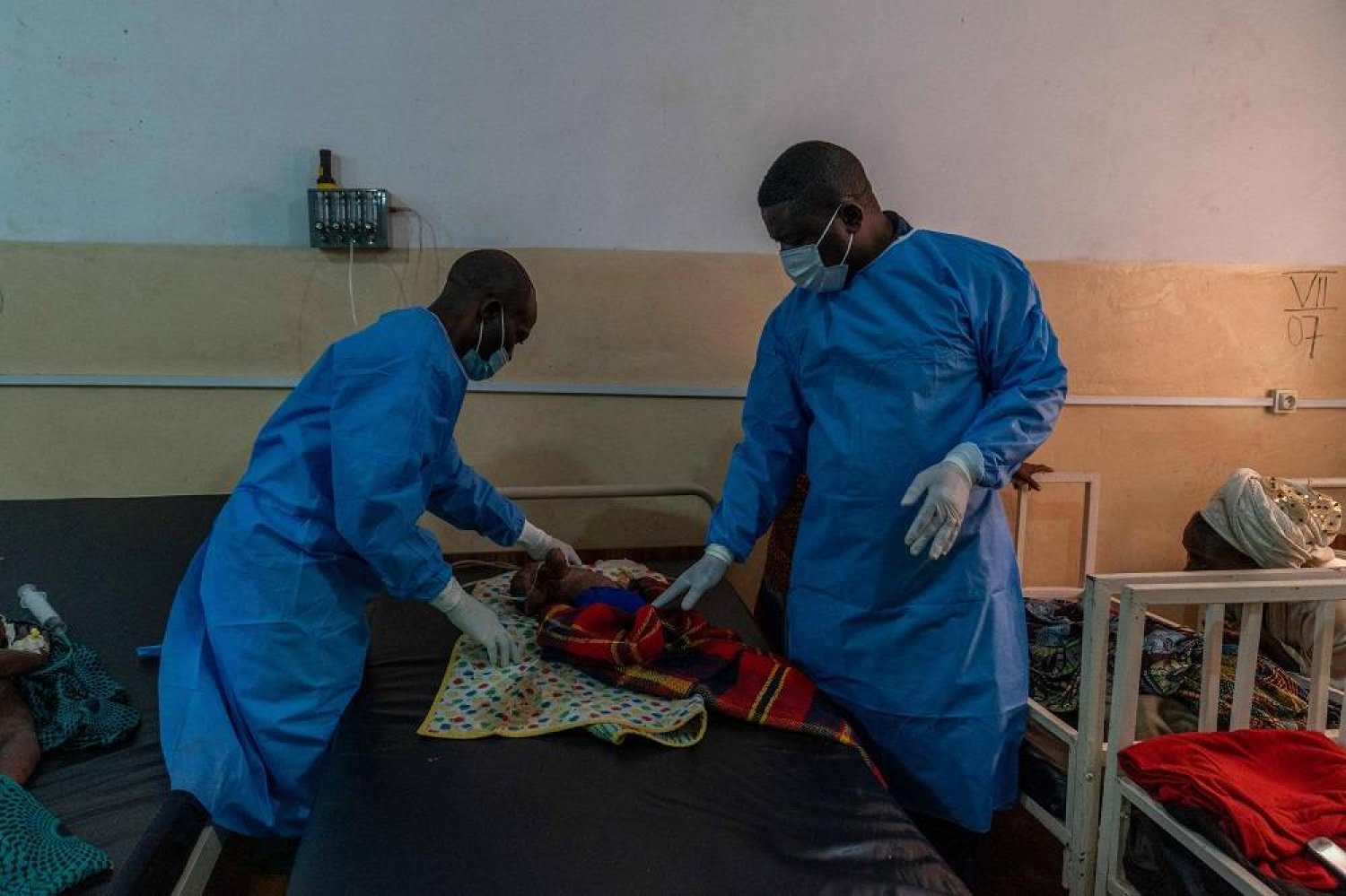
The new strain of mpox is evolving quickly, and African scientists are “working blind” to adapt
The new mpox strain that has spread beyond the Democratic Republic of Congo is evolving at a quicker pace than anticipated, particularly in regions where experts lack the necessary funding and instruments to monitor it effectively, according to scientists who are conducting research on the virus.
Half a dozen scientists in Africa, Europe, and the United States informed Reuters that the response is complicated by the numerous unknowns regarding the virus itself, its severity, and its transmission path.
Mpox, once referred to as monkeypox, has been a public health issue in certain regions of Africa since 1970. However, it did not garner significant global attention until it experienced a significant international outbreak in 2022, which prompted the World Health Organization to declare a global health emergency. That declaration was terminated ten months later.
A new strain of the virus, clade Ib, has once again captured the world’s attention following the declaration of a new health emergency by the World Health Organization.
The strain is a mutated variety of clade I, a strain of mpox that has been endemic in Congo for decades and is transmitted through contact with infected animals. Mpox normally results in pus-filled lesions and flu-like symptoms, and it has the potential to be fatal.
The WHO has reported that Congo has experienced over 18,000 suspected clade I and clade Ib mpox cases and 615 fatalities this year. 222 confirmed clade Ib cases have also been reported in four African countries in the past month, in addition to one case each in Sweden and Thailand in individuals with a travel history in Africa.
“I am concerned that we are operating in Africa without proper oversight,” expressed Dr. Dimie Ogoina, the chair of the WHO’s mpox emergency committee and an infectious diseases specialist at Niger Delta University Hospital in Nigeria. He initially raised the alarm regarding the potential sexual transmission of mpox in 2017, which is now recognized as a viable method of virus transmission.
“We don’t understand our outbreak very well, and if we don’t understand our outbreak very well, we will have difficulty addressing the problem in terms of transmission dynamics, the severity of the disease, risk factors of the disease,” according to Ogoina. “And I worry about the fact that the virus seems to be mutating and producing new strains.”
According to him, the 2022 global outbreak was initiated by the evolution of clade IIb in Nigeria, which required at least five years to achieve a level of sustained transmission among humans. The same has been accomplished by Clade Ib in less than a year.
MUTATION ‘FORCEFULLY’
From the same family as smallpox, mpox is an orthopoxvirus. Population-wide protection from a global smallpox vaccine campaign that was implemented fifty years ago has diminished, as the vaccination program was discontinued following the disease’s eradication.
The World Health Organization estimates that clade Ib infections, which emerged in mid-September 2023, bear a mutation known as APOBEC3, which is a signature of adaptation in humans. Genetic sequencing has revealed this.
According to Dr. Miguel Paredes, who is conducting research on the evolution of mpox and other viruses at Fred Hutchison Cancer Center in Seattle, the virus that causes mpox has historically been relatively stable and sluggish to mutate. However, APOBEC-driven mutations have the potential to accelerate viral evolution.
“All the human-to-human cases of mpox have this APOBEC signature of mutations, which means that it’s mutating a little bit more rapidly than we would expect,” said the researcher.
Several mpox epidemics occurred simultaneously, complicating the response, according to Paredes and other scientists.
Mpox was primarily acquired through human contact with infected animals in the past. Scientists said that the increase in clade I cases in Congo, which is also referred to as clade Ia, is still being driven by deforestation and the increased consumption of bushmeat.
The mutated versions, clade Ib and IIb, can now be fundamentally classified as a sexually transmitted disease, according to Dr. Salim Abdool Karim, a South African epidemiologist and chair of the Africa CDC’s mpox advisory committee. The epidemic among female sex workers in South Kivu, Congo, initially drove the majority of the mutated clade Ib cases among adults.
The virus can also be transmitted through intimate contact with an infected individual, which is believed to be the mechanism by which clusters of children have contracted clade Ib, particularly in the displacement camps of eastern Congo and Burundi, where the crowded living conditions may have contributed.
The WHO and mpox scientists caution that individuals with weakened immune systems or other illnesses, pregnant women, and children may be at a heightened risk of developing serious mpox disease and mortality.
Compared to clade II, which has a fatality rate of approximately 1%, clade I has historically caused more severe disease, with a range of 4%-11%. Ogoina declared that Congolese data indicates that the new Ib version has caused few fatalities; however, he expressed concern that certain data may be confused.
Further research is urgently required; however, three teams that are monitoring mpox outbreaks in Africa have reported that they are unable to obtain the necessary compounds for diagnostic tests. However, certain diagnostic tests may also overlook Clade Ib.
In the absence of this, the scientists stated that it is challenging to devise a response, which includes vaccination strategies.
In eastern Congo, where Ib is particularly prevalent, approximately half of the cases are diagnosed solely by physicians, without laboratory confirmation, according to Karim.
The healthcare system is already under pressure, which makes it challenging to transport samples to laboratories, according to him. In the midst of the conflict between the government and the M23 insurgent group, approximately 750,000 individuals have been displaced.
According to Dr. Emmanuel Nakoune, an expert in mpox at the Institut Pasteur in Bangui, Central African Republic, numerous African laboratories are unable to obtain the necessary supplies. The Institute Pasteur also has clade Ia cases.
“This is not a luxury,” he stated, but rather a necessity for the purpose of monitoring potential fatal outbreaks.
All Categories
Tags
+13162306000
zoneyetu@yahoo.com



